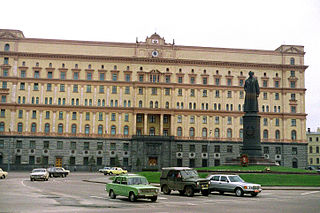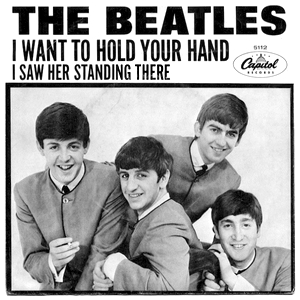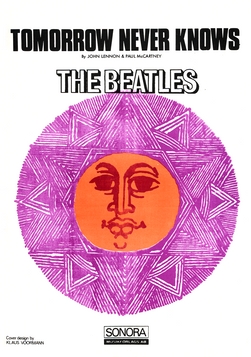
The Beatles, also known as "The White Album", is the ninth studio album by the English rock band the Beatles, released on 22 November 1968. A double album, its plain white sleeve has no graphics or text other than the band's name embossed, which was intended as a direct contrast to the vivid cover artwork of the band's previous LP Sgt. Pepper's Lonely Hearts Club Band. Although no singles were issued from The Beatles in Britain and the United States, the songs "Hey Jude" and "Revolution" originated from the same recording sessions and were issued on a single in August 1968. The album's songs range in style from British blues and ska to pastiches of Chuck Berry and Karlheinz Stockhausen.
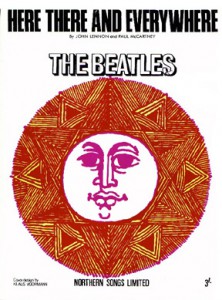
"Here, There and Everywhere" is a song by the English rock band the Beatles from their 1966 album Revolver. A love ballad, it was written by Paul McCartney and credited to Lennon–McCartney. McCartney includes it among his personal favourites of all the songs he has written. In 2000, Mojo ranked it 4th in the magazine's list of the greatest songs of all time.

"For No One" is a song by the English rock band the Beatles from their 1966 album Revolver. It was written by Paul McCartney, and credited to Lennon–McCartney. A baroque pop song about the end of a relationship, it was one of McCartney's most mature and poignant works upon its release. Mostly performed by the composer, the track is distinguished by its French horn solo, performed by Alan Civil and used as counterpoint in the final verse.

"Thank You Girl" is a song recorded by the English rock band the Beatles, written by John Lennon and Paul McCartney (Lennon–McCartney), and issued as the B-side of the single "From Me to You", which was recorded on the same day. While not released on an LP in the United Kingdom until Rarities in 1978, the song was the second track on The Beatles' Second Album in the United States. As the B-side of the single "Do You Want to Know a Secret", it hit No. 35 on the Billboard Hot 100 in the spring of 1964.

"Oh! Darling" is a song by the English rock band the Beatles, composed by Paul McCartney, and appearing as the fourth song on the 1969 album Abbey Road. Its working title was "Oh! Darling ". Although not issued as a single in either the United Kingdom or the United States, a regional subsidiary of Capitol successfully edited it as a single in Central America, having "Maxwell's Silver Hammer" as its B-side. It was also issued as a single in Portugal. Apple Records released "Oh! Darling" in Japan with "Here Comes the Sun" in June 1970.

"Things We Said Today" is a song by English rock band the Beatles written by Paul McCartney and credited to Lennon–McCartney. It was composed for the film A Hard Day's Night but was eventually not included. It does appear on the soundtrack album. It was also released as the B-side of the single "A Hard Day's Night" in the UK.
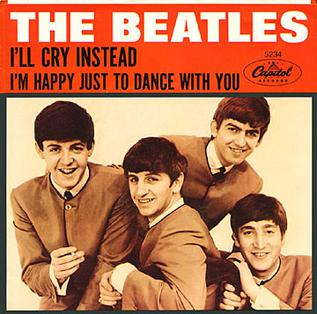
"I'm Happy Just to Dance with You" is a song written by John Lennon and Paul McCartney and recorded by the English rock band the Beatles for the film soundtrack to A Hard Day's Night. Lead vocals are by George Harrison, whose performance in the film marked the first mass media depiction of Harrison singing lead.
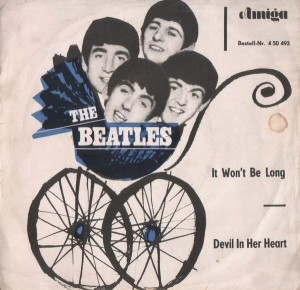
"It Won't Be Long" is a song by the English rock group the Beatles, released as the opening track on their second UK album With the Beatles (1963), and was the first original song recorded for it. Although credited to Lennon–McCartney, it was primarily a John Lennon composition, with Paul McCartney assisting with the lyrics and arrangement.

"All I've Got to Do" is a song written by John Lennon and performed by the English rock group the Beatles on their second British album, With the Beatles (1963). In the United States, "All I've Got to Do" originally appeared on Meet the Beatles! (1964). According to Dennis Alstrand, the song is the first time in rock and roll or rock music where the bass player plays chords as a vital part of the song.

"Little Child" is a song by the English rock group the Beatles from their 1963 UK album With the Beatles. It was written by John Lennon and Paul McCartney for Ringo Starr, but Starr was instead given "I Wanna Be Your Man" as his album song.
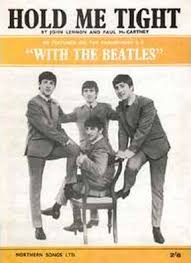
"Hold Me Tight" is a rock and roll song by English rock group the Beatles from their 1963 album With the Beatles. It was first recorded during the Please Please Me album session, but not selected for inclusion and re-recorded for their second album.
"Chains" is a song composed by the husband-and-wife songwriting team Gerry Goffin and Carole King and originally recorded by the Everly Brothers. In 1962 it was a hit for Little Eva’s backing singers, The Cookies, and later covered by English rock group The Beatles.

"There's a Place" is a song co-written by John Lennon and Paul McCartney and first released as a track on the Beatles' debut LP, Please Please Me. Lennon and McCartney share lead vocals, with George Harrison providing backing vocals. In the US it was released on Introducing... The Beatles and as the B-side of "Twist and Shout", and was finally released by Capitol Records on Rarities in 1980.

"I'll Get You" is a song by the English rock band the Beatles, written by Lennon–McCartney, and released by the Beatles as the B-side of their 1963 single "She Loves You". The song was initially titled "Get You in the End".
"Dizzy Miss Lizzy" is a rock and roll song written and recorded by Larry Williams in 1958. It became better known through a 1965 cover version by the Beatles. The track was also performed live by John Lennon with the Plastic Ono Band in 1969, as one of only five Beatles songs done live throughout his solo career.

"She's a Woman" is a song by the English rock band the Beatles, written mainly by Paul McCartney and credited to Lennon–McCartney. John Lennon contributed to the lyrics and middle eight. The song was finished in the studio the morning of the session. It was released as the B-side to "I Feel Fine" in 1964, their last single release that year. It reached number 4 on the Billboard Hot 100 from frequent airplay. In New Zealand, the song reached number one for one week.

Paul McCartney: Many Years from Now is a 1997 biography of Paul McCartney by Barry Miles. It is the "official" biography of McCartney and was written "based on hundreds of hours of exclusive interviews undertaken over a period of five years", according to the back cover of the 1998 paperback edition. The title is a phrase from McCartney's song "When I'm Sixty-Four", from the Beatles' 1967 album Sgt. Pepper's Lonely Hearts Club Band. The book was first published in the United Kingdom in October 1997 by Secker & Warburg.

"Christmas Time " (Lennon/McCartney/Harrison/Starkey) is a Christmas song recorded by the Beatles for their 1967 fan club Christmas record. After being slated for inclusion in the planned Sessions compilation album in 1985, the song finally saw official re-release in 1995 on the "Free as a Bird" single, for which it was edited from its original 6:17 to a shortened version of 3:03. The song opens with a light-hearted tune from all four of the Beatles and occasionally cuts to a tale of the Beatles arriving at the fictional BBC house. This part of the song was cut from the 1995 single version. The song then closes with a Christmas greeting from all four of the Beatles. At the end, "Auld Lang Syne" is played on the organ as Lennon reads one of his original nonsense free verse poems.

"That Means a Lot" is a song written (mainly) by Paul McCartney, but credited to Lennon–McCartney. It was released in 1965 by P.J. Proby. Proby's version reached #24 on the NME chart. Prior to the release by Proby, the Beatles recorded a version that was intended for the Help! film and soundtrack album. The Beatles were dissatisfied with the song and their version was not released until the Anthology 2 CD in 1996.



